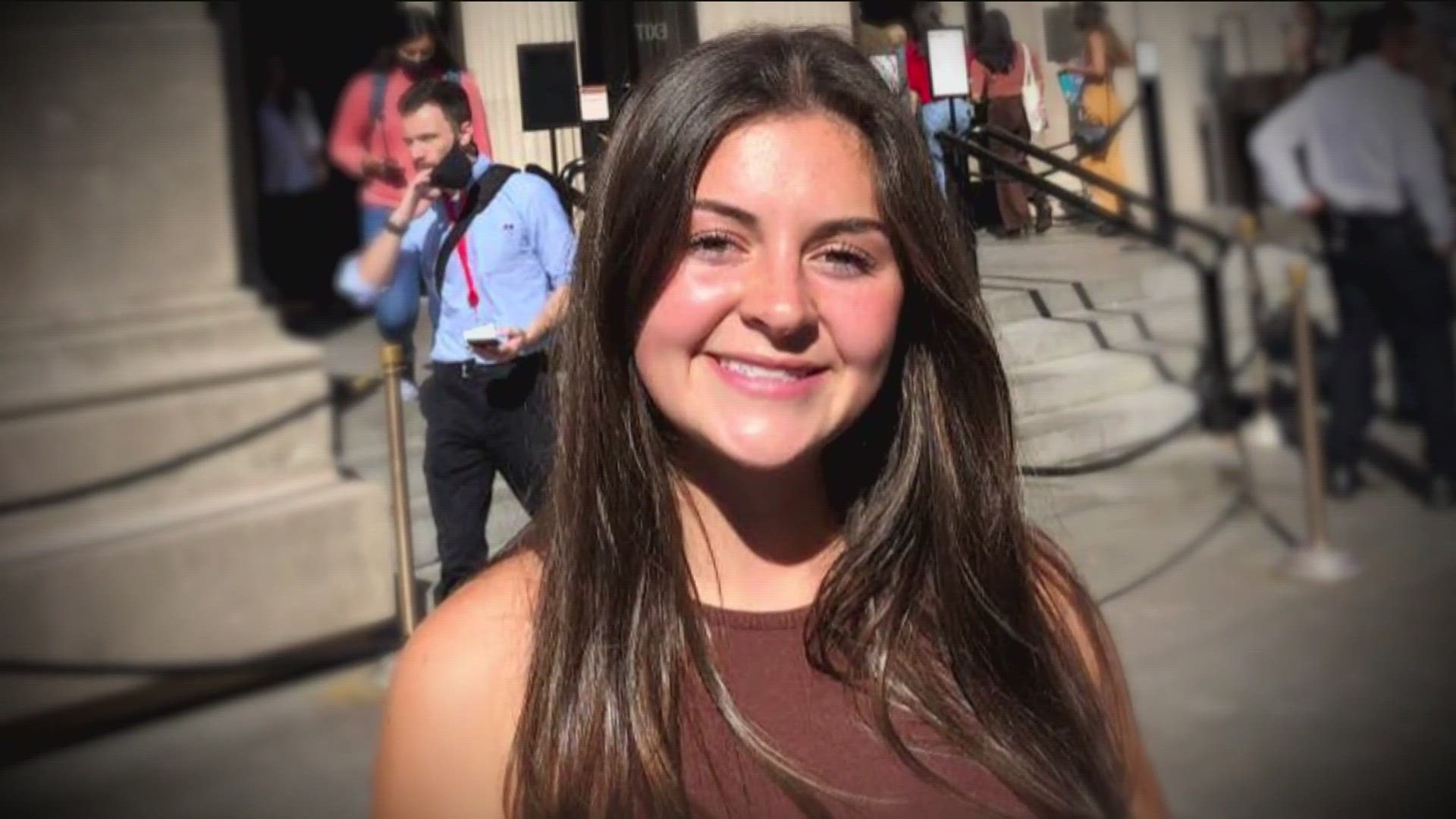ATHENS, Ga. — Editor's Note: The above story is from related coverage. Read below for the latest information.
The Clarke County Sheriff’s Office is looking to clarify its policy over undocumented arrestees and inmates with the public following an outcry over the death of nursing student Laken Riley.
Speculation grew about Athens law enforcement agencies’ immigration policies shortly after the incident. Policies continued to be in question following U.S. Secretary of Homeland Security Alejandro Mayorkas’ comments about ICE not being notified about Jose Ibarra, Laken Riley’s accused killer, after prior run-ins with police.
Ibarra was arrested once in a New York incident last year, and about a month later cited -- but not taken into custody -- over a shoplifting incident in Athens.
Authorities found Riley’s body in a wooded area near the Intramural Fields on UGA’s campus on Feb. 22.
Jose’s brother, Diego, also had recent run-ins with the law which have gained attention since his brother’s arrest, sparking conversations around immigrations policies nationwide. Diego faced a federal judge in Macon on Thursday in his case involving allegedly possessing a fake green card.
What is the Clarke County Sheriff's Office policy?
Authorities said in a statement to media on Thursday that the sheriff’s office declined requests to hold Immigration and Customs Enforcement (ICE) inmates that are not signed off by a judge in 2018 -- also known as detainers. They stated that the law requires the office to notify ICE when they book someone who is a suspected foreign national.
“ICE detainers are requests, not a court order or warrant. Holding a person based solely on an ICE detainer constitutes a warrantless arrest,” the Thursday statement said.
For further clarification, Clarke County Sheriff’s Office explained they must have reason to hold an arrestee to detain them in the county, but they will not hold inmates for ICE without reason, unless a judge ordered the request.
Clarke County Sheriff’s Office said in relation to the Laken Riley murder case that Jose had no prior arrests in Athens-Clarke County or the state of Georgia before the murder, despite his previous encounters with the law.
About a month after Ibarra was arrested in New York for having a child on the back of a motorcycle without a helmet, police accused him and his brother of stealing from a Walmart in Athens.
RELATED: ICE was not notified about alleged Laken Riley killer's past run-ins with police, US official says
According to the police report, the two allegedly took bacon, smoked sausage, queso fresco cheese and some clothes. Police gave the two a citation for misdemeanor shoplifting and let them go — which would not have led to full arrest since it was just a citation.
Furthermore, the sheriff’s office took responsibility by calling attention to some practices that “could be improved” within their office when tracking undocumented inmates.
“We would like to reaffirm to the people who live, work, and contribute to Athens-Clarke County that we care about your safety and this is our main priority,” the statement continued.
More about the case
On Feb. 22, UGA Police told the media they found a body of a woman near the campus Intramural Fields and were searching for answers surrounding her death.
The university canceled classes for the rest of the week following the death until they could find the killer. In 24 hours, police took Ibarra into custody and identified Riley as the victim.
Shortly after his arrest, a judge denied Ibarra bond at a first appearance hearing.
Authorities released Ibarra’s citizenship status, sparking concerns and questions around his immigrations status with community members and leaders nationwide. Ibarra’s arrest fueled a highly political conversation around immigration policies in the country.
Diego Ibarra's troubles with the law soon also came to light, fueling the fire around immigration as he was accused of being affiliated with a Venezuelan gang.
Jose Ibarra’s wife spoke with the New York Post, giving details on the previous arrest in New York and how his family traveled into the country illegally from Venezuela. Days later, warrants were released, allegedly detailing Riley’s last moments. Much remains unknown about the specific details of what led up to Ibarra allegedly attacking Riley and whether any motive may have existed.
Warrants accused Ibarra of “causing great bodily harm with an object,” causing bodily harm to Riley’s skull, and concealing the death of another by “dragging the victim to a secluded area.”
After the first appearance, typically, either a bond hearing or preliminary hearing will occur in a Georgia criminal case. So far, a judge has not set a further court date for Ibarra.

